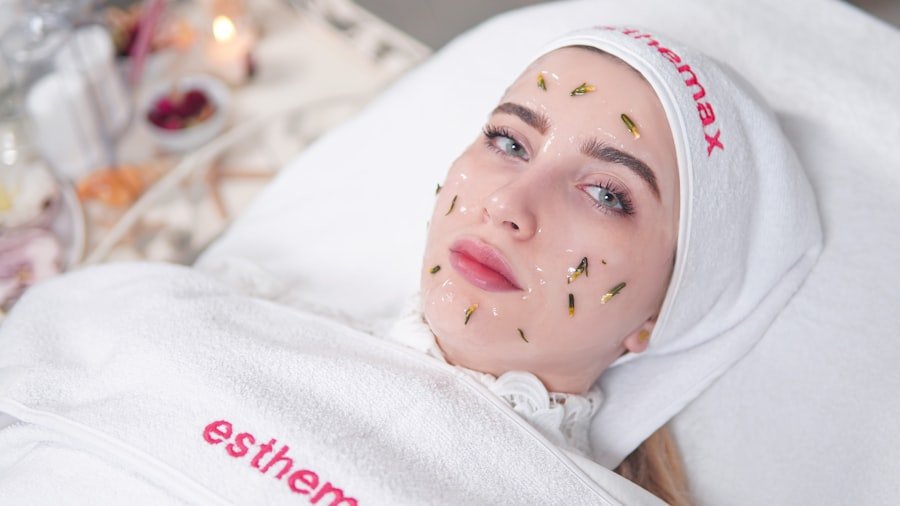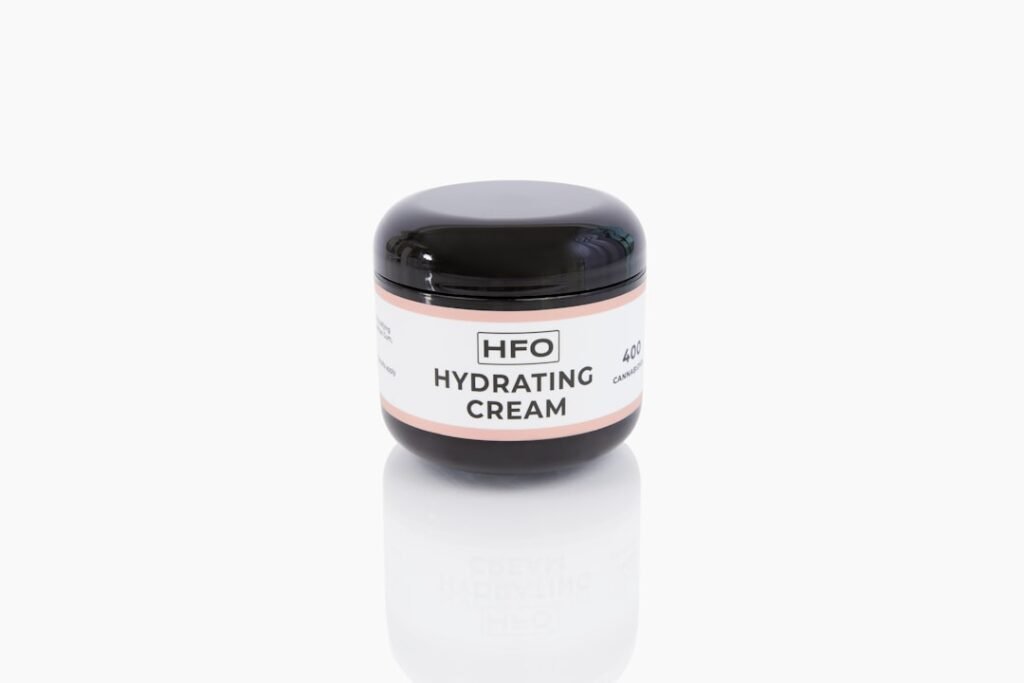For many of us, the belief that greasy foods lead to acne is a long-standing myth that has been passed down through generations.
We often hear the warning that indulging in fried foods or fast food can trigger breakouts, leading us to avoid these items in hopes of maintaining clear skin.
However, this notion oversimplifies the complex nature of acne and its causes.
While it is true that a diet high in unhealthy fats may not be beneficial for our overall health, the direct link between greasy foods and acne is not as straightforward as we might think. Research has shown that acne is primarily influenced by hormonal changes, genetics, and skin type rather than solely by dietary choices. While some individuals may notice a correlation between their consumption of greasy foods and the appearance of acne, this does not mean that greasy foods are the sole culprit.
Instead, we should consider a more holistic approach to understanding our skin health, recognizing that various factors contribute to acne development beyond just our food choices.
Key Takeaways
- Eating greasy foods does not directly cause acne
- There is no proven link between chocolate and acne
- Dairy products may not necessarily worsen acne for everyone
- Cutting out all sugar may not completely clear up acne
- Drinking more water alone will not cure acne
- The relationship between diet and acne is complex
- Some individuals may be more sensitive to certain foods that can trigger acne
- A balanced diet is important for overall skin health, but its impact on acne varies for each person
- The impact of diet on acne varies for each person and is not a one-size-fits-all solution
- Skincare and genetics also play a significant role in acne development
- Understanding the truth about acne and diet is key to managing skin health
Myth: Chocolate and acne are linked
The Myth of Chocolate and AcneDebunking the Belief
Many of us have grown up believing that chocolate is a major contributor to acne breakouts. We’ve been told that indulging in chocolate bars or desserts can result in unsightly blemishes. However, scientific research has not found a direct link between chocolate and acne. This idea has been perpetuated by anecdotal evidence and cultural beliefs.
The Real Culprits
While some studies suggest that high-sugar and high-fat foods, which can include certain types of chocolate, may exacerbate acne in some individuals, the evidence remains inconclusive. It’s essential to recognize that chocolate itself is not inherently bad for our skin. In fact, dark chocolate contains antioxidants that can be beneficial for our overall health.
Finding Balance
As we navigate our dietary choices, we should focus on moderation and balance rather than completely eliminating chocolate from our lives. By doing so, we can enjoy the benefits of chocolate while maintaining healthy, glowing skin.
Myth: Dairy products worsen acne

The belief that dairy products worsen acne is another myth that has gained traction over the years. Many of us have been led to believe that consuming milk, cheese, and yogurt can trigger breakouts due to their hormonal content. While some studies have suggested a potential link between dairy consumption and acne, the results are not definitive enough to warrant a blanket statement about all dairy products affecting everyone in the same way.
It is important for us to consider individual differences when it comes to dietary sensitivities. Some people may indeed experience an increase in acne when consuming dairy, while others may not notice any adverse effects at all. Instead of completely cutting out dairy from our diets, we can experiment with different types of dairy products and observe how our skin reacts.
This personalized approach allows us to make informed decisions about our dietary choices without succumbing to generalized myths.
Myth: Cutting out all sugar will clear up acne
In our quest for clear skin, many of us have been tempted by the idea that cutting out all sugar will lead to a significant improvement in our acne. While it is true that excessive sugar consumption can have negative effects on our overall health, the notion that eliminating sugar entirely will clear up acne is an oversimplification of a much more complex issue. Our bodies require some level of sugar for energy, and completely cutting it out can lead to cravings and unhealthy eating patterns.
Instead of adopting an all-or-nothing approach, we can focus on reducing our intake of refined sugars and processed foods while incorporating healthier alternatives into our diets. By making mindful choices about the types of sugars we consume, we can strike a balance that supports both our skin health and overall well-being.
Myth: Drinking more water will cure acne
The idea that drinking more water will cure acne is a popular belief that many of us hold dear. Staying hydrated is undoubtedly important for our overall health, but the notion that simply increasing our water intake will eliminate acne is misleading. While proper hydration can help maintain skin elasticity and overall appearance, it does not directly address the underlying causes of acne.
For those of us struggling with breakouts, it is essential to recognize that hydration alone will not solve our skin issues. Instead, we should focus on a comprehensive skincare routine that includes cleansing, exfoliating, and moisturizing alongside maintaining adequate hydration levels. By combining these practices with a balanced diet, we can create an environment conducive to healthier skin.
Fact: The relationship between diet and acne is complex

Breaking Free from Dietary Restrictions
Recognizing the complexity of acne development can be liberating. Instead of focusing on specific foods or dietary restrictions, we can adopt a more holistic approach to skincare that considers all aspects of our lifestyle.
A Holistic Approach to Skincare
By acknowledging that there is no one-size-fits-all solution to acne management, we empower ourselves to make informed choices about our diets while also addressing other contributing factors.
Empowering Informed Choices
This approach allows us to take a more comprehensive look at our lifestyle and make positive changes that benefit our overall health and wellbeing, rather than just focusing on a single aspect of our diet.
Fact: Some individuals may be more sensitive to certain foods
While the relationship between diet and acne is complex, it is important to acknowledge that some individuals may be more sensitive to certain foods than others. For those of us who experience persistent breakouts despite maintaining a healthy diet, it may be worth exploring potential food sensitivities or intolerances. Keeping a food diary can help us identify patterns between our dietary choices and skin reactions.
By paying attention to how our bodies respond to specific foods, we can gain valuable insights into what works best for our unique skin types. This personalized approach allows us to tailor our diets in a way that supports our skin health while still enjoying a variety of foods.
Fact: A balanced diet is important for overall skin health
When it comes to maintaining healthy skin, a balanced diet plays a crucial role in supporting overall well-being. Nutrient-rich foods provide essential vitamins and minerals that contribute to skin health, such as antioxidants found in fruits and vegetables, omega-3 fatty acids from fish, and zinc from nuts and seeds. By prioritizing a diverse range of whole foods in our diets, we can nourish our bodies from the inside out.
Incorporating a variety of food groups into our meals not only benefits our skin but also enhances our overall health. A balanced diet helps regulate hormones, supports immune function, and promotes healthy digestion—all factors that can influence the appearance of our skin. By focusing on nourishing ourselves with wholesome foods, we create an environment conducive to clearer skin.
Fact: The impact of diet on acne varies for each person
As we navigate the complexities of diet and acne, it is essential to recognize that the impact of dietary choices on skin health varies significantly from person to person. What may trigger breakouts for one individual may not have the same effect on another. This variability underscores the importance of personalized approaches to skincare and diet.
For those of us dealing with acne, it can be helpful to experiment with different dietary changes while monitoring how our skin responds over time. By being patient and observant, we can identify which foods support our skin health and which ones may contribute to breakouts. This individualized approach empowers us to take control of our skincare journey.
Fact: Skincare and genetics also play a role in acne development
While diet undoubtedly plays a role in acne development, it is crucial for us to remember that skincare practices and genetics also significantly influence our skin’s condition. Our genetic makeup determines how our skin behaves, including its oil production levels and susceptibility to breakouts. Additionally, using appropriate skincare products tailored to our skin type can help manage existing acne and prevent future breakouts.
By combining effective skincare routines with mindful dietary choices, we can create a comprehensive approach to managing acne. Understanding that multiple factors contribute to our skin’s health allows us to take proactive steps toward achieving clearer skin while also embracing our unique genetic traits.
Understanding the truth about acne and diet is key to managing skin health
In conclusion, navigating the relationship between diet and acne requires us to sift through myths and misconceptions while embracing the complexity of this issue. By recognizing that greasy foods, chocolate, dairy products, sugar intake, and hydration alone do not dictate our skin’s health, we empower ourselves to make informed choices about our diets and skincare routines. Ultimately, understanding the truth about acne and its connection to diet is key to managing our skin health effectively.
By adopting a balanced approach that considers individual sensitivities and incorporates nutrient-rich foods alongside proper skincare practices, we can work toward achieving clearer skin while fostering overall well-being. As we continue on this journey together, let us remain open-minded and patient as we explore what works best for each of us in our pursuit of healthy skin.
If you’re interested in debunking myths related to skincare, you may also want to check out this comprehensive guide on black wax hair removal here. Dr. Trisha Khanna also provides valuable information on various topics such as COVID-19 com/cosmetic-dermatology/hair-scalp-treatments/’>here.
FAQs
What is the relationship between acne and diet?
There is ongoing research about the relationship between acne and diet, but current evidence suggests that certain foods may contribute to acne in some individuals. However, the link between diet and acne is not fully understood and varies from person to person.
Does eating greasy or fried foods cause acne?
Contrary to popular belief, there is no direct evidence that eating greasy or fried foods causes acne. However, some individuals may find that certain foods, including greasy or fried foods, can exacerbate their acne. It’s important to pay attention to your own body and how it reacts to different foods.
Is chocolate a major cause of acne?
There is no conclusive evidence to support the idea that chocolate is a major cause of acne. While some individuals may find that consuming chocolate can worsen their acne, it is not a universal trigger for everyone.
Can dairy products lead to acne breakouts?
Some studies have suggested that there may be a link between dairy consumption and acne, particularly skim milk. However, more research is needed to fully understand the relationship between dairy products and acne. It’s important for individuals to pay attention to their own bodies and how they react to dairy.
Are there specific foods that can help prevent or improve acne?
While there is no definitive list of foods that can prevent or improve acne, a balanced diet rich in fruits, vegetables, whole grains, and lean proteins can support overall skin health. Some individuals may find that certain foods, such as those high in antioxidants and omega-3 fatty acids, can help improve their skin condition.


